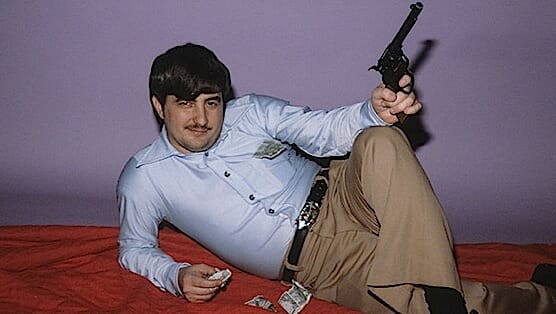The Dog

The curious appeal of the documentary The Dog, of course, its sizzle, is in the outlandish act that made John Wojtowicz famous, and the subject of an Oscar-winning film—the 1972 robbing of a Brooklyn bank in order to finance his lover’s sex re-assignment surgery. But all around the edges, in abundant portion, there’s depression and dissociation and the quiet tragedy of mental illness kind of politely indulged rather than ever successfully treated. The result is a good film that at times flirts with singularity, but also one that is a melancholic and at times frustrating work—entertaining but wearying—for the taxing degree to which it turns itself over to its self-involved, self-satisfied subject.
On screen, most people know Wojtowicz through the character of Sonny Wortzik, and the panicked, electric performance of Al Pacino in director Sidney Lumet’s Dog Day Afternoon. In real life, Wojtowicz is, if possible, even more of a live wire. He sometimes opts for weird similes (“I’m like the gay Babe Ruth!”), but Wojtowicz is from the beginning open about his sexual compulsion, and he generally comes across like a soft-serve machine of candor, stuck on pump. “I’ve had four wives and 23 girlfriends, because I’m a pervert,” says Wojtowicz. “And they all know each other because I’m like Prudential—I’m the rock, and I give a piece of myself to everybody.”
The film, then, happily charts its subject’s unusual life, from an early gay experience in the military through his first marriage to Carmen Bifulco, his turbulent relationship with Ernest Aron (the man he would take as his second “wife”) and of course the armed and botched attempt, with two accomplices, to rob a Chase Manhattan bank. The pre-robbery details, which Wojtowicz lays out in characteristically blunt terms, are in lockstep oddity with the case as a whole: a daisy chain of sexual coercion and self-loathing, and a viewing of The Godfather to get pumped up.
-

-

-

-

-

-

-

-

-

-

-

-

-

-

-

-

-

-

-

-

-

-

-

-

-

-

-

-

-

-

-

-

-

-

-

-

-

-

-

-








































